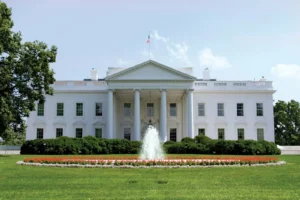It’s an old cliche that the U.S. has a “broken” immigration system. Indeed, politicians from both sides of the aisle point to border dysfunction, systemic backlogs, and humanitarian crises, to say nothing of the millions of foreign individuals living and working in the U.S. without authorization.
But while the legal immigration system can be frustrating, it is not insurmountable. Indeed, U.S. government data shows that over a MILLION foreigners per year successfully obtain lawful permanent residence (“Green Card” status). More than a quarter of these Green Card holders obtained their status through employer sponsorship.
Over the last several years, we have seen increased Green Card demand from seasonal employers utilizing the H-2B nonimmigrant visa program. While the H-2B program is an excellent solution for businesses to fill their seasonal or peak load labor needs, the temporary nature of the program means that such employers may have unfulfilled needs for their ongoing operations.
Furthermore, the H-2B program is subject to an annual cap on visa issuance. Because demand exceeds the available visa supply several times over, H-2B employers must compete with each other in an annual lottery. And although additional visas (“cap relief”) are usually made available, the process is still fraught with peril and uncertainty. It is no wonder, then, that so many H-2B employers choose Green Card sponsorship as a means of mitigating against the H-2B cap risk and providing long-term labor solutions.
H-2B workers are eligible for Green Card sponsorship through the EB-3 preference category. This preference category includes skilled workers, professionals, and “other” workers (i.e., workers without college degrees). Transitioning from an H-2B visa to Green Card status, however, is not without its hurdles.
The primary challenge comes from the cap itself, and the yearly uncertainty about whether workers will be able to come to the U.S. in H-2B status. That uncertainty, plus lack of control over the timeliness of the government processing, makes the Green Card strategy a particular challenge. For workers to pursue an in-country adjustment of status (i.e., remaining in the U.S. pending Green Card approval), the stars must align such that immigrant visas are available at the same time workers are in-country. There is no guarantee on either front.
If the stars do not align, workers must pursue their Green Card through consular processing. In practice, this means waiting for an immigrant visa to become available through the U.S. consulate or embassy. During that waiting period, which may be a full year or more, it is extremely difficult for the workers to return to the U.S. in H-2B status.
The difficulty in returning stems from the fact that the H-2B visa is not a “dual intent” visa — meaning, to be eligible for an H-2B visa in the first place, the worker must have the intent to depart the U.S. at the conclusion of the contract. Workers coming to the U.S. with the intent to emigrate will not be eligible for H-2B status.
Fortunately, immigrant intent usually comes into play only during the final stage of the Green Card process, when the employer files an Immigrant Petition on the sponsored worker’s behalf. For the first two years of the Green Card process, the sponsored worker generally has no issue returning to the U.S. in H-2B status.
More potential good news: In November 2023, U.S. Citizenship and Immigration Services (USCIS) issued a Notice of Proposed Rulemaking to make it easier for H-2A workers to pursue lawful permanent residence, effectively scaling back the “immigrant intent” limitation. Should this rule become finalized, it would allow workers to continue in H-2B employment business-as-usual until their Green Cards are issued.
If you are considering the Green Card option for your H-2B workers, consider working with másLabor. As one of the nation’s leading H-2B service providers, we are uniquely positioned to help your workers transition to Green Card status while safeguarding your H-2B program eligibility.
CLICK HERE to schedule a free consultation with our Green Card subject matter experts, or visit maslabor.com for more information.







